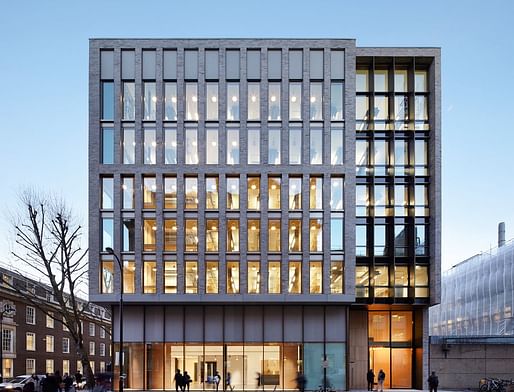

The UK’s Architects Registration Board (ARB) has unveiled plans to overhaul the country’s system for educating and training architects. Under the plans, currently out for consultation, the existing Part 1, 2, and 3 system would be replaced by a requirement for only two accredited qualifications; one based on academia, and one based on practice.
The current pathway to becoming an architect in the United Kingdom typically involves students obtaining an undergraduate qualification in architecture to satisfy ARB’s Part 1 criteria, a master's qualification in architecture to satisfy the Part 2 criteria, and a final diploma in architectural practice to satisfy the Part 3 criteria. The resulting pathway involves five years of study, and two years in practice before becoming a licensed architect, though it takes many individuals more than the minimum of seven years between commencing their education and joining the register.
The new system would see the Part 1, 2, and 3 route replaced by a requirement that students demonstrate their readiness to practice as an architect by meeting 49 ‘outcomes’ grouped under five headings: Professionalism and Ethics; Design; Research and Evaluation; Contextual and Architectural Knowledge; and Management, Practice, and Leadership.
To achieve the academic-based portion of the 49 outcomes, students will still be required to complete an ARB-accredited Level 7 qualification which is typically equivalent to a two-year master's degree. Crucially, students will no longer be required to complete an undergraduate degree in architecture before their Level 7 qualification, which typically takes three years.
To achieve the remaining training-based portion of the 49 outcomes, students will require an ARB-accredited diploma or certificate gained through professional practical experience. Many of the current Part 3 diploma courses take one year, with students also requiring a minimum of two years of practical experience before applying to join the register.
Those who hold both academic and practical qualifications can then join the register, as ARB will have deemed them to have met all 49 outcomes.
"UK architectural education is globally respected and attracts students from all over the world, but the regulatory framework is inflexible and hasn’t changed in over fifty years," ARB said when launching the consultation. "We’re also aware that whilst the current regulatory framework for education has produced thousands of excellent architects, it’s created significant barriers to some people becoming architects at all. We’ve heard that the cost of education and the requirements for work experience create barriers for people from less affluent backgrounds or without existing networks in the profession."
If the proposals are approved, anyone setting out to become an architect from September 2027 onwards will have to be trained and educated in the new system.
Following the announcement, RIBA President Simon Allford released a statement expressing concern that the reforms do not go far enough.
"At present, I do not see much change," Allford noted in a statement reported by The Architect's Journal. "The ARB accreditation model does not allow the new courses we are supporting to create a more accessible and open and representative profession. Nor does it speed things up. We need to support courses that recognise and reinforce the need for core skills and competencies but also the essential requirement to equip the next generation to create ever-evolving and appropriately different models of practice."
No Comments
Block this user
Are you sure you want to block this user and hide all related comments throughout the site?
Archinect
This is your first comment on Archinect. Your comment will be visible once approved.